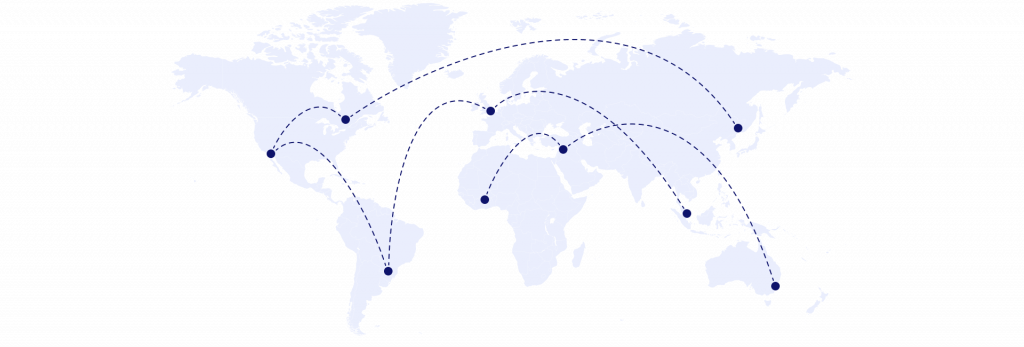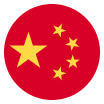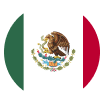How to find Chinese private label manufacturers for online stores?
Last updated: 28 April 2025
Discover the best ways to find reliable private label manufacturers in China for your online store.
Key takeaways
- Private labelling allows you to outsource product manufacturing while you focus on branding, marketing and selling
- Local trade shows, like the Canton Fair in China, offer direct access to private label manufacturers and help build long-term relationship
- Online marketplaces such as Alibaba and 1688 provide convenient ways to find Chinese manufacturers
- Ask key questions about previous collaborations, licenses and payment terms before partnering with any manufacturer to ensure reliability
- Use WorldFirst to streamline cross-border supplier payments and get access to fast transfers, competitive rates and local currency accounts

In Australia, private label products represent approximately 18% of the market share. In fact, the dollar growth for private label products in the country is nearly two times more than their branded counterparts. As a result, it isn’t surprising that 61% of Australians consider private labelled products as good alternatives to branded products.
If you plan to source private labelled products for your business, China can be a good place to start your search for suppliers. For more than a decade, China has been a major manufacturing hub of the world due to its robust ecosystem of experienced manufacturers, strategic location and pool of skilled labour.
In this blog, we take a look at how to find Chinese private label manufacturers when your business is based overseas.
Table of Contents
What is private labelling?
Private labelling involves outsourcing product manufacturing for your business to a third party. So, the manufacturer makes products for a specific business and the business then sells the products under its branding.
So, the manufacturer does all the heavy lifting while your business gets to focus on branding, marketing and selling. The products are sold by your business and made to look like they belong to your brand.
Since the product is specially produced for your business, you can decide its price point and how it will be customised. It helps you stand apart from the sea of generic products and improve your brand value.
Of course, that means there’s a risk that comes with private labelling. In case you’re unable to sell the products, you’ll have dead stock on your hands which you cannot resell to other businesses.
Where to find Chinese private label manufacturers?
1. Local trade shows
One of the best ways to find and meet Chinese private label manufacturers face-to-face is by attending local trade shows. You can connect with manufacturers from different regions who specialize in the niche you’re interested in. Instead of waiting for product samples to get shipped, you can check the various product samples in person and foster a long-lasting relationship with suppliers.
There are many trade shows that are organised in different cities at different times of the year. The biggest trade show in China is the Canton Fair, held in Guangzhou, China, in April and October every year. It is organised by the China Foreign Trade Centre and co-hosted by the Ministry of Commerce of China.
The fair is held in three phases, with each phase showcasing different product categories. If you’re keen on checking out trade shows in China, the Canton Fair should definitely be on your list. But make sure you register for tickets in advance to avoid any last-minute disappointments.
2. Search online
You can also start your research online to get a good idea of the major players in the private label market. Get initial quotes from manufacturers as you narrow down your research. But you should be careful when looking at the top results you see on search engines. Just because a manufacturer seems to have good Google reviews doesn’t always mean they run a genuine business.
3. Check online marketplaces
Here’s the easiest way to find genuine and reputable manufacturers based in China while sitting in your office overseas–Check the Chinese B2B marketplaces. There are two major B2B online marketplaces where you can find suppliers and manufacturers based in China:
Alibaba: Alibaba is a B2B marketplace that allows global businesses to connect with suppliers and manufacturers from around the world, most of which are based in China. There’s a separate page where you can specifically look for private labelled products and connect with suppliers who specialize in manufacturing them. Another way to find private label products on Alibaba is by searching products with the keywords ‘oem.’

→ Take a look at our complete guide on buying from Alibaba
1688: It’s another B2B marketplace based in China that was mainly introduced to make it easier for domestic businesses to connect with manufacturers and wholesalers in China. As a result, the website is in Mandarin and product prices are usually lower than those on Alibaba. While you can use 1688 to broaden your search, keep in mind that it can be challenging to use the platform.
You will have to translate the website into English to use it. 1688 suppliers may also have limited English proficiency, which can lead to communication problems if you don’t have a translator by your side.
1688 only supports domestic payment methods. The only way to make authorized international payments through 1688 is through World Pay.
→ Take a look at our complete guide on how to buy from 1688
Ask people around you
Direct referrals are always a good way to find reliable and trustworthy suppliers. Ask around your network to see if anyone has sourced private label products from China before and what their experience was like. Even if you don’t find direct manufacturer referrals, you may end up with a good list of dos and don’ts which can help you further down the line.
- Open 15+ local currency accounts and get paid like a local
- Pay suppliers, partners and staff worldwide in 100+ currencies
- Collect payments for free from 130+ marketplaces and payment gateways, including Amazon, Etsy, PayPal and Shopify
- Take control of spending with the World Card, a business expense card that saves you more with 1% cashback. Learn more
- Save with competitive exchange rates on currency conversions and transfers
- Lock in exchange rates for up to 24 months for cash flow certainty
Questions to ask when choosing a private label manufacturer in China
When you connect with a private label manufacturer, here are a few questions you should consider asking them before placing your first order:
- Can you share examples of your previous collaborations with businesses?
- Can you share your business licenses and quality certificates for verification?
- What are the minimum order quantity, payment terms and average lead time?
- Will the complete branding be included in the product sample?
- What are the manufacturing processes followed?
Streamline supplier payments with WorldFirst
Trade fairs and online marketplaces in China make it easy to find suppliers, but the biggest challenge you will face with international suppliers is making cross-border payments that don’t cut through your profits.
WorldFirst helps businesses make fast, secure and reliable international transfers to China at competitive exchange rates. With WorldFirst,
With a World Account, you can pay suppliers in 150+ currencies. You can also set up virtual currency accounts in 20+ currencies, including GBP, USD, CAD, EUR, AUD, NZD and CNH to collect payments in your customers’ preferred currencies.
With WorldFirst, it’s easy to send same-day or next-day payments at competitive interbank/mid-market rates (Cut off times apply)
What’s more? Payments are free and instant between World Accounts.
Disclaimer: The information contained is general only and largely our views. Before acting on the information you should consider whether it is appropriate for you, in light of your objectives, financial situation or needs. Although information has been obtained from and is based upon multiple sources the author believes to be reliable, we do not guarantee its accuracy and it may be incomplete or condensed. All opinions, estimates, mentioned products/services and referenced material constitute the author’s own judgement as of the date of the briefing and are subject to change without notice. WorldFirst shall not be responsible for any losses or damages arising from your reliance of such information.


How to ship products from 1688 to Australia
Planning to ship products from 1688 to Australia? Learn how to navigate freight options, customs paperwork and payment workflows to streamline your supply chain
Nov / 2025
1688 vs Alibaba: Which is better?
1688 vs Alibaba: Compare China’s top B2B platforms and find out which suits your business best. Plus learn how to pay suppliers easily with WorldFirst.
Oct / 2025
Product sourcing from China: How to get started
Learn about everything you need to know about product sourcing from China, right from finding suppliers to choosing the most cost-effective
Oct / 2025Choose a category below for more business, finance and foreign exchange support from WorldFirst.
- Almost 1,500,000 businesses have sent US$500B+ around the world with WorldFirst and its partner brands since 2004
- Your money is safeguarded with leading financial institutions





































